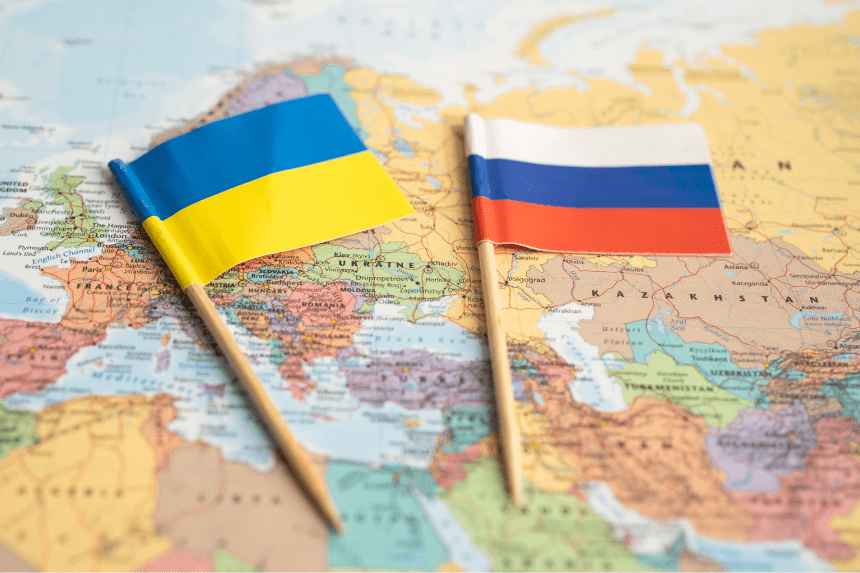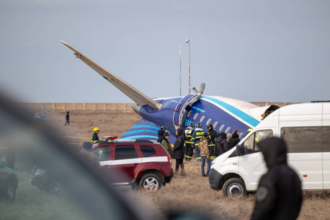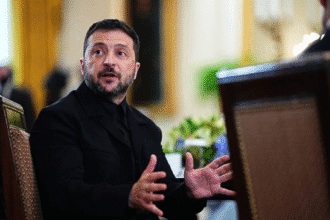The Ukraine-Russia peace talks in Turkey have once again captured worldwide interest, raising questions on whether international relations can finally bring an end to the devastating conflict in Eastern Europe. Despite the symbolic importance of returning to the negotiation table, expectations stay cautiously low. Officials and observers alike factor out that proper development will in all likelihood require more than delegation-stage communication’s going to need commitment from top management on both facets.
- Why Are Expectations for the Talks So Low?
- Can a Trump-Putin Meeting Make a Difference?
- What Sparked the Renewed Push for Peace Talks?
- Who Is Representing Each Side on the Negotiating Table?
- What Key Issues Are on the Table for Discussion?
- How Are Ukraine’s Allies Reacting to the Talks?
- Is There Real Potential for Progress in Istanbul?
- Conclusion: Can Diplomacy Succeed Where Force Has Failed?
Symbolically, the assembly in Istanbul reflects a growing reputation that the endurance of warfare is unsustainable. Yet, without tremendous concessions and actual political will, the talks might also prove to be more ceremonial than transformative.
Why Are Expectations for the Talks So Low?
Doubt surrounding the talks turned into overt criticism through U.S. Senator Marco Rubio following a NATO foreign ministers assembly held in southern Turkey. Rubio emphasised that a significant step forward is not going to happen unless high-profile leaders—in particular Donald Trump and Vladimir Putin—are at once worried. His view was echoed by numerous analysts who argue that low-level negotiators can simply cross so that a date without strategic decisions being made at the very top.
Ukrainian President Volodymyr Zelensky also voiced skepticism at the talks, although he confirmed that Ukraine might be sending a proper delegation. He criticized Russia’s team as being too junior in rank, decoding their constrained authority as a sign that Moscow does not take the discussions seriously. For Zelensky, the dearth of high-ranking representatives isn’t simply procedural; it’s far a political statement.
Can a Trump-Putin Meeting Make a Difference?
Donald Trump, speaking at the same time as visiting the Middle East, declared that no full-size development would occur except he and President Putin met head to head. He made it clear that “nothing’s going to appear” without direct communication on the management level. Although Trump left open the possibility of attending the Ukraine-Russia peace talks in Turkey, he later suggested he would probably return to Washington, lowering expectations of his involvement.
While Trump’s statements may seem self-centered to some, they replicate a broader reality in global diplomacy: agreements of this scale and complexity frequently require presidential-stage intervention. Without it, even the nicely organized delegations would possibly return empty-handed.
What Sparked the Renewed Push for Peace Talks?
The modern-day sphere of peace talks was initiated after President Putin responded to European leaders and Ukraine’s joint call for a 30-day unconditional ceasefire. Clearly and visibly, as a strategic and symbolic move, Putin proposed a right away negotiation in Istanbul. Zelensky conventional the dialogue, however, concurrently challenged Putin to take part in person. However, the Kremlin soon clarified that Putin might not be attending the talks himself.
Zelensky expressed disappointment over the Russian delegation’s composition, viewing it as a sign of disrespect toward not handiest Ukraine but also the other stakeholders, including Turkish President Erdoğan and former U.S. President Trump. Speaking in Ankara, Zelensky remarked that the lack of a timetable and low-level officials showed Moscow’s reluctance to pursue authentic communication. Read another article on Zelensky and Putin’s Peace Talks
Who Is Representing Each Side on the Negotiating Table?
Ukraine’s delegation to the Ukraine-Russia peace talks in Turkey is being led by way of Defense Minister Rustem Umerov. He is supported using high-ranking officers from Ukraine’s navy fashionable team of workers, the intelligence community, and the foreign ministry. This sturdy crew alerts Ukraine’s readiness to engage in comprehensive dialogue, supported by way of technical and strategic know-how.
On the Russian side, the delegation is led using Vladimir Medinsky, a presidential aide who also headed the failed peace negotiations in 2022. The Kremlin has covered its deputy ministers of defense and foreign affairs, in addition to the pinnacle of army intelligence, in its team. Medinsky stated that Russia sees the Istanbul talks as a continuation of previous efforts to deal with the root causes of the battle and set up long-term peace.
Despite the technical qualifications of both delegations, the absence of heads of state may also restrict their capability to make impactful decisions for the duration of this round of talks.
What Key Issues Are on the Table for Discussion?
Although no formal agenda has been made public, it’s expected that the important issues below for discussion will resemble the ones from the 2022 negotiations. Russia is in all likelihood to demand that Ukraine remain impartial, reduce its navy capabilities, and abandon aspirations for NATO membership. Ukraine has continually rejected those conditions, viewing them as threats to its sovereignty and independence.
The battlefield state of affairs adds urgency but additionally complexity to the negotiations. Russia has these days claimed manage over greater villages in Donetsk and now occupies more or less 20 percent of Ukraine’s territory, which includes Crimea, which it annexed in 2014. These territorial realities will almost certainly affect each the tone and content of the discussions in Istanbul.
How Are Ukraine’s Allies Reacting to the Talks?
Ukraine’s Western allies have persevered to offer their support and strain. The United Kingdom, specifically, has referred to as for accelerated sanctions on Russia to force meaningful engagement within the peace process. Following a joint meeting in Berlin, UK Defence Minister John Healey entreated European international locations to maintain tightening economic and diplomatic pressure on Moscow.
Such coordinated worldwide efforts are critical in giving weight to the Ukraine-Russia peace talks in Turkey. Without constant outside stress, there’s little incentive for Russia to compromise or adjust its method. Meanwhile, diplomatic engagement stays crucial for preventing in addition escalation and beginning space for destiny agreements.
Is There Real Potential for Progress in Istanbul?
While many analysts stay skeptical, there may be careful optimism that the talks could yield some initial outcomes. Even confined agreements—which include humanitarian corridors, prisoner exchanges, or ceasefire trial periods—would constitute meaningful progress. These incremental profits, if finished, should pave the way for extra great negotiations down the line.
The Ukraine-Russia peace talks in Turkey may not remedy the war in a single day, however, they mark a vital resumption of discussion that has been missing given that 2022. Simply bringing both aspects again to the table, in particular in an impartial venue like Istanbul, is itself a diplomatic victory.
Conclusion: Can Diplomacy Succeed Where Force Has Failed?
The Ukraine-Russia peace talks in Turkey offer a crucial opportunity to shift the momentum from struggle to diplomacy. While the absence of pinnacle political leaders may reduce the capability for a sweeping agreement, the very act of assembly again sets a hopeful precedent. Both facets face enormous strain—from their populations, from the global network, and the toll of persevered violence.
For diplomacy to prevail, every birthday celebration should method the table with clean intentions and the willingness to compromise. As the arena watches, even small signs of development could serve as the muse for a broader and more long-lasting peace.
Let’s wish this try at communication does not end like the ones of the past, with ignored probabilities and extended sufferin, —but instead serves as a significant step in the direction of finishing this tragic struggle.








